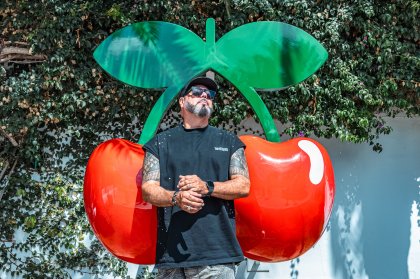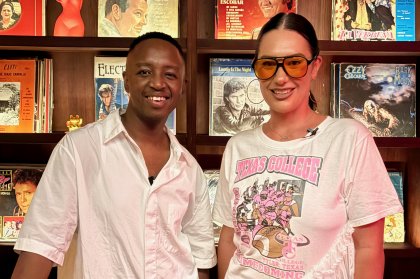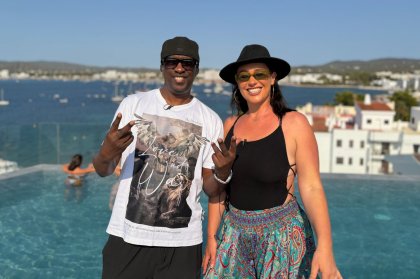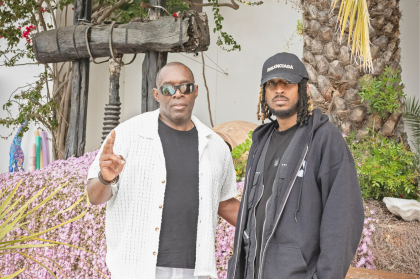Black Coffee (Nkosinathi Maphumulo off duty) hardly fits the profile we've come to associate with DJs. Sober, quiet and stationary in a club, he might not at first seem like the sort you'd want to put in charge of your night out. “I don't drink I don't smoke, I can't dance…. It's really awkward for me to go out; I mean how many glasses of Coca Cola can you drink in a night! I don't look like I'm fun basically - until I'm playing.” At which point anyone with ears and emotions will recognise that there are few things more uplifting than Coffee's contribution to music, and that the joy shared between this artist and his crowd does more for a club night than any wild party antics ever could - and doesn't come with a hangover. “I love making music, but for me that's a very intimate thing, and not shared with anyone else. But when I DJ… For example, I was in Toronto recently, and I will never forget how their faces were lit up. There was something special about that night; everyone was smiling. For me, to be able to bring that joy to people's lives is the most amazing thing. You're touching their inner souls and no other way could be better: that's music.”
Making music of all kinds since the mid 90s, to Black Coffee the DJing and electronic world is enriched by the influence and incorporation of all other genres of music. Now enjoying mainstream success - and the over-saturation and reproduction of material that inevitably comes with it - artists in the dance music and electronica scene are now more than ever in search of originality and inspiration, branching out to weave the instruments and compositional qualities of other genres into its own culture. Some of Coffee's most high profile projects, like ‘Africa Rising' (a DVD recording of a live show in Durban where Coffee's biggest house releases were performed by a live band, vocalists and a twenty-four piece orchestra) or the Ballantine's Human Orchestra cover of his production, Rock My World, don't just sound brilliant, but are crucial in keeping music innovative and alive. Crossover of styles is also an important part of South African music culture, and an opportunity to display to the world its musical diversity. “Growing up I was involved in many different styles, and I try to bring all these elements into my music. I want it all - whether it's jazz, gospel, soul - I want all these elements to come out.”
A strong and informed music scene is all the more important in a place often plagued by conflict, and the more international attention South African artists receive, the more likely their music will spread to other African nations, in dire need of the positivity, community and sense of purpose that a flourishing music industry can bring. “In South Africa we still have a divided scene. There is the deep house scene, and the Ultra scene - the black scene and the white scene. And the white scene knows Richie [Hawtin], they know Seth [Troxler], they know all these people. The black scene doesn't. The black scene knows of Louis Vega, they know of Kerri Chandler, of Todd Terry - of different guys. So as we grow, it's vitally important to have more understanding.”
South Africa's growing dance music scene therefore functions as much more than a way to have fun, and its artists are loaded with the responsibility of using their position of popularity for the good of the nation. “Our country is very young. We have challenges that we are facing, that our country is going through. For example this whole xenophobia crisis, where there were fights, stores being looted and anger at foreign people in the country. We knew we had to get involved and there was a big march planned quickly in the city. I had to take the first flight to Durban to attend the march and be available and be vocal, then fly back out that afternoon because I had a meeting. So it's a big responsibility. It's not just being on the podium and people taking pictures of you - when crises come up you have to be part of the solution.”
In only takes a twenty-minute interview to find Nkosinathi Maphumulo has just the right kind of positivity, intelligence and determination to bear such a responsibility, but it's high time he had reinforcements. Coffee burst onto the South African house music scene in its developing years, which gave him plenty of room for growth and a huge amount of influence on the culture's direction. Many talented South African artists have since emerged, largely due to the work of his label Soulistic Music but as yet Black Coffee's international platform as a representative for South African house is a lonely one - and he's doing all he can to change that. “It has to stop. We have a big scene and it's high time the other guys come. We have amazing talent; yesterday we signed a new artist - not new, but new to our label - his name is Da Capo and he's one of the most talented producers in the country, you know. We have started to open doors and make a platform for others but there are more of us and that's where I would like things to be, so it's not just one guy, you know? There's a scene. This is the time.”
View this feature in the weekly Spotlight Magazine, Issue 022.
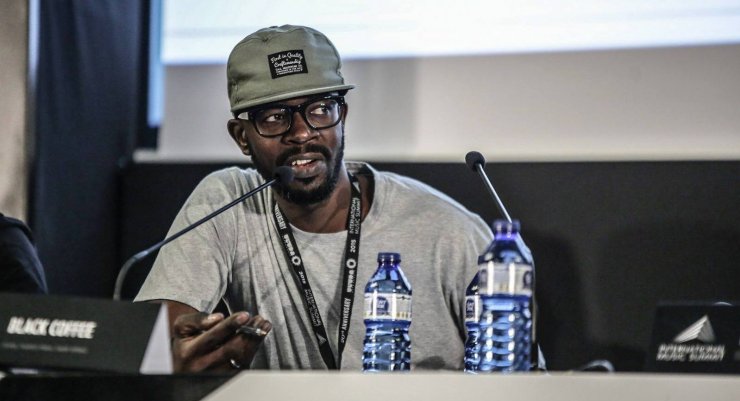
WORDS | Jordan Smith PHOTOGRAPHY | James Chapman
